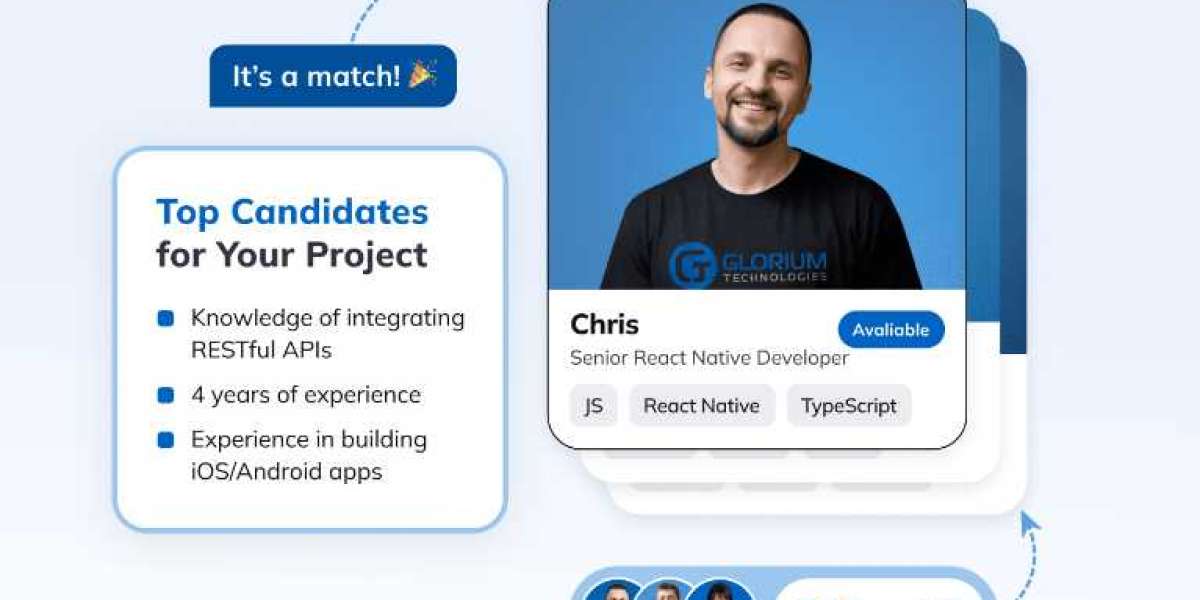In the ever-evolving landscape of mobile app development, React Native has emerged as a go-to framework for companies looking to build high-quality, cross-platform applications efficiently. Developed by Facebook, React Native allows developers to use a single codebase to create apps that run on both iOS and Android, reducing development time and cost. However, as businesses consider integrating React Native into their mobile strategies, one of the critical questions that arise is: What is the cost of hiring React Native developers?
This comprehensive guide delves into the factors influencing the cost of hire React Native developers, the different hiring models available, the pros and cons of each, and what businesses can expect regarding budget allocations. Whether you’re a startup looking to launch your first app or an established enterprise aiming to enhance your mobile offerings, understanding the cost dynamics of React Native development is crucial.
Understanding the React Native Framework
Before diving into the cost considerations, it's essential to understand why React Native has become so popular. React Native enables developers to write code in JavaScript, a language widely known and used in web development, and render it using native components. This approach offers several advantages:
- Cross-Platform Development: React Native allows developers to write once and deploy on both iOS and Android platforms, saving time and resources.
- Performance: Despite being a cross-platform framework, React Native offers near-native performance due to its ability to directly use native components.
- Strong Community and Ecosystem: Backed by Facebook and a robust developer community, React Native has a wealth of libraries, tools, and resources available.
- Hot Reloading: Developers can instantly see the results of code changes without recompiling the entire app, speeding up the development process.
These benefits make React Native an attractive option, but they also introduce complexity when it comes to hiring developers who can maximize these advantages.
Factors Influencing the Cost of Hiring React Native Developers
The cost of hiring React Native developers can vary significantly based on several factors. Understanding these variables can help businesses make informed decisions when budgeting for their app development projects.
1. Experience Level of the Developer
The experience level of a React Native developer is one of the most significant factors affecting cost. Developers can generally be categorized into three levels:
Junior Developers: With 1-2 years of experience, junior developers are relatively new to React Native and mobile app development in general. They can handle basic tasks but may require guidance for more complex features. Cost: $20 to $50 per hour.
Mid-Level Developers: With 3-5 years of experience, mid-level developers have a solid understanding of React Native and can handle most tasks independently. They are well-versed in integrating APIs, managing state, and optimizing performance. Cost: $50 to $100 per hour.
Senior Developers: With over 5 years of experience, senior developers have deep expertise in React Native, including advanced optimization, architecture design, and troubleshooting. They can lead projects and mentor junior developers. Cost: $100 to $200 per hour.
The higher the experience level, the more you can expect to pay. However, the added cost often translates to higher-quality code, faster development times, and fewer bugs.
2. Geographical Location
The geographical location of the developer or development team plays a crucial role in determining the cost. The hourly rates for React Native developers vary widely across different regions:
North America: Developers in the U.S. and Canada tend to command the highest rates due to the high cost of living and demand for tech talent. Cost: $100 to $200 per hour.
Western Europe: Countries like the UK, Germany, and France also have high rates, though slightly lower than North America. Cost: $70 to $150 per hour.
Eastern Europe: Countries like Ukraine, Poland, and Romania offer highly skilled developers at more affordable rates. Cost: $30 to $70 per hour.
Asia: India, China, and other Southeast Asian countries have the lowest rates, but the quality can vary. Cost: $20 to $50 per hour.
While hiring developers from lower-cost regions can reduce expenses, it's essential to balance cost with the quality of work and communication capabilities.
3. Hiring Model
The hiring model you choose will significantly impact the overall cost. The three most common models are:
Freelancers: Hiring freelancers is often the most cost-effective option, especially for small projects or when you need specific tasks completed. However, freelancers may not always be available for ongoing support or large-scale projects. Cost: $20 to $100 per hour.
In-House Developers: Building an in-house team provides more control and direct communication but comes with higher overhead costs, including salaries, benefits, and workspace. Annual Salary: $80,000 to $150,000+ depending on experience and location.
Dedicated Development Teams: Many businesses opt for dedicated teams from development agencies or outsourcing firms. This model provides a balanced approach, offering scalability and diverse expertise at a predictable cost. Cost: $30 to $120 per hour depending on the team's location and expertise.
Each model has its pros and cons, and the best choice depends on your project's scope, timeline, and budget.
4. Project Complexity
The complexity of your project will also influence the cost. A simple app with basic functionality will require less time and expertise compared to a complex app with advanced features, integrations, and custom animations.
Simple Apps: These include apps with basic functionality, such as a login screen, user profile, and simple navigation. Estimated Cost: $10,000 to $30,000.
Medium Complexity Apps: These apps might include features like payment gateways, social media integrations, and real-time data synchronization. Estimated Cost: $30,000 to $80,000.
Complex Apps: Apps with complex features, such as AI-driven recommendations, real-time chat, or advanced security protocols, will be the most expensive. Estimated Cost: $80,000 to $150,000+.
The more complex the app, the more development time is required, which directly impacts the overall cost.
5. Project Duration
The duration of the project also affects the cost. Long-term projects typically offer opportunities for cost savings, as developers may offer discounted rates for extended contracts. However, it's important to plan for ongoing maintenance and updates, which can add to the long-term cost.
Short-Term Projects (1-3 months): These are ideal for simple apps or MVPs (Minimum Viable Products). Cost: $10,000 to $50,000.
Mid-Term Projects (3-6 months): Medium complexity apps usually fall into this category. Cost: $50,000 to $100,000.
Long-Term Projects (6+ months): Complex apps with extensive features and integrations often require long-term development. Cost: $100,000+.
6. Additional Costs
Beyond the core development costs, several additional expenses should be considered:
Project Management: Effective project management is essential for keeping the development on track. Whether you hire a dedicated project manager or outsource this role, it will add to the overall cost.
Design: The UI/UX design is a critical component of any app. Hiring skilled designers or working with a design agency will increase costs but can significantly enhance the user experience.
Testing and Quality Assurance: Rigorous testing is crucial for ensuring the app's reliability and performance. QA engineers or testers may need to be hired or outsourced, adding to the budget.
Maintenance and Updates: Post-launch, the app will require ongoing maintenance, including bug fixes, updates for new OS versions, and possibly new features.
Detailed Cost Breakdown for Hiring React Native Developers
To provide a clearer picture, let’s break down the costs for a typical React Native app development project. This example assumes a medium-complexity app with a development timeline of 4-6 months, including design, development, testing, and deployment.
1. Design Phase
- UI/UX Design: 100 hours at $50 per hour = $5,000
- Prototyping: 50 hours at $50 per hour = $2,500
- Total Design Cost: $7,500
2. Development Phase
- Front-End Development: 400 hours at $75 per hour = $30,000
- Back-End Development: 300 hours at $75 per hour = $22,500
- API Integration: 100 hours at $75 per hour = $7,500
- Total Development Cost: $60,000
3. Testing and QA
- Manual Testing: 100 hours at $40 per hour = $4,000
- Automated Testing: 100 hours at $40 per hour = $4,000
- Total Testing and QA Cost: $8,000
4. Project Management
- Project Manager: 200 hours at $60 per hour = $12,000
- Total Project Management Cost: $12,000
5. Deployment and Maintenance
- App Deployment: 50 hours at $50 per hour = $2,500
- Post-Launch Maintenance (first 3 months): 100 hours at $50 per hour = $5,000
- Total Deployment and Maintenance Cost: $7,500
Additional Considerations for Hiring React Native Developers
As you plan your budget and approach to hiring React Native developers, consider these additional aspects to ensure a smooth development process and effective resource management.
1. Developer Skill Set and Specialization
The specific skills and expertise of React Native developers can also affect costs. Developers with specialized knowledge or additional skills in areas like:
- Custom Animations: Advanced animations can enhance user experience but require more expertise and development time.
- Third-Party Integrations: Integrating with third-party services like payment gateways or social media platforms may require specialized skills.
- Security and Compliance: For apps handling sensitive data, developers with experience in implementing robust security measures are essential.
These specializations can increase the hourly rates but may be necessary depending on the complexity of your app.
2. Development Tools and Technologies
The choice of development tools and technologies can impact costs. For example:
- Custom Libraries and Tools: Using custom-built libraries or tools may increase development time and cost compared to leveraging existing ones.
- Development Environment: Cloud-based development environments or advanced testing tools can add to the overall cost but can improve efficiency and code quality.
Make sure to evaluate the trade-offs between using advanced tools and keeping costs manageable.
3. Communication and Collaboration
Effective communication and collaboration between you and the development team are crucial for a successful project. Consider the following:
- Time Zones: If working with a remote team, time zone differences can impact communication and project timelines.
- Language Barriers: Ensure that there is no language barrier that could hinder clear communication and understanding of project requirements.
- Project Management Tools: Invest in project management tools like Jira or Trello to track progress and facilitate communication.
Clear communication can prevent misunderstandings and delays, ultimately impacting project costs and quality.
4. Contract and Legal Aspects
When hiring React Native developers, especially from different regions, pay attention to:
- Contracts: Have clear contracts outlining project scope, timelines, payment terms, and deliverables. This helps avoid disputes and unexpected costs.
- Intellectual Property (IP): Ensure that the contract includes clauses regarding IP ownership and confidentiality to protect your business interests.
Legal considerations are essential for protecting your project and ensuring a smooth working relationship with your development team.
5. Long-Term Costs and ROI
Consider the long-term costs and return on investment (ROI) of hiring React Native developers. A higher initial investment in experienced developers or quality design might lead to a better user experience, fewer bugs, and a more successful app, ultimately resulting in higher ROI.
Conclusion
Understanding the cost of hiring React Native developers involves evaluating multiple factors including experience level, geographical location, hiring model, project complexity, and additional considerations such as specialization and communication. By carefully planning and budgeting for these aspects, you can make informed decisions and optimize your investment in mobile app development.
React Native presents a powerful solution for building cross-platform apps, offering both cost efficiency and high performance. However, the cost of hiring the right developers can vary widely. Whether you choose to hire freelancers, build an in-house team, or engage with dedicated development agencies, balancing quality and cost is key to a successful project.
By following the tips provided and considering the additional factors discussed, you can effectively manage your budget and ensure a successful development process, ultimately leading to a high-quality app that meets your business goals and user expectations.



